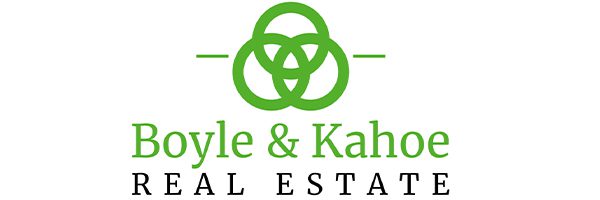Top 10 Benefits of Home Inspections
When buying a home it is often easy to fall in love with the open floor plan, the curb appeal, or even the layout of the kitchen. The inside may be beautiful and appear to be in excellent shape, however, the aesthetics can sometimes be hiding the real problems. This is why home inspections are a valuable part of the home buying process. The buyer pays the cost of a home inspection and can always waive the right to an inspection. However, that’s not a good idea. You should make a home inspection a priority in your home-buying process.
Home inspections provide potential homebuyers with a thorough assessment of the property’s condition, identifying any hidden or potential issues that may not be evident during a casual walkthrough. This helps buyers make informed decisions and negotiate the purchase price accordingly. Ultimately, home inspections offer peace of mind, empowering individuals to make sound choices and promoting transparency and accountability in real estate transactions. Let’s take a closer look at ten benefits of home inspections, tips for buyers and sellers, as well as some red flags that can be uncovered during the inspection.
What are the benefits of a home inspection?
Maryland home inspections are critical for home buyers to uncover key issues that may affect the quality of their homeownership.
- Home inspections ensure safety by uncovering any structural, electrical, or plumbing problems that could pose risks to occupants.
- They also help detect the presence of harmful substances like mold, asbestos, or radon, which may have long-term health effects.
- Inspections reveal maintenance or repair needs, allowing buyers to budget for future expenses and plan for necessary renovations.
- A comprehensive inspection report provides a valuable reference for homeowners to prioritize repairs or improvements, enhancing the longevity and value of their investment.
- A good home inspector will also walk you through the key aspects of the property that you need to watch out for maintenance.
- When you and the seller reach an agreement on the home, you are under some legal obligation to finalize the sale. A home inspection gives you ways to get out of the deal. Once the home inspector completes a report, you can renegotiate with the seller.
- You will be educated about one of your greatest purchases. The home inspection can provide the new homeowner with practical information about the home, such as where the main water shutoff and the main fuel shutoff valves are located.
- A home inspection is cost efficient. They vary from $300 for a condominium, to $350 – $500 for a single family home. The money is well worth the investment. It can keep you from having to spend tens of thousands of dollars in repairs later.
- Most inspection reports include the cost of deferred maintenance. This is a list of things that will need maintenance or to be replaced in the next five years.
- A thorough home inspection will bring you peace of mind because you are guaranteed the condition of the home when the sale finalizes. This prevents major surprises after moving into the home.
What are some common home inspection red flags?
For homes, both old and new, an inspection can help identify some key issues. There are many common home inspection red flags:
- Leaks or cracks in walls
- Cracked or damaged shingles on the roof
- Cracks in windows or doors
- Termite or rodent infestation
- Wear and tear of mechanical systems
- Improperly wired electrical systems
- Structural problems in the foundation
- Unsafe radon levels
The number of defects flagged in the report doesn’t necessarily mean your house will not sell. You can ignore minor repairs like garden faucet replacement or a tiny crack in the window. Issues with relatively higher severity, like a rodent infestation or the presence of mold, can cause the deal to fall through, so they should be fixed. Buyers should include a home inspection contingency in the contract. This gives you the ability to negotiate with the seller if the inspector uncovers any major repairs or maintenance that is needed on the house. The inspector will not give the house a pass or fail. That is the job of the buyer. You can choose to buy a house that has major problems, or you can negotiate with the seller. A contingency clause in your contract will allow the buyer a specific timeline, called the inspection period, to decide if they want to still purchase the house. If the buyer decides to back out they are able to recover the earnest money deposit and walk away from the deal. These inspection contingency regulations vary statewide.
What should buyers and sellers expect during a home inspection?
Tips for Buyers
- Be sure to include the home inspection contingency in your contract.
- Look closely at the seller disclosure statement. This is a standard checklist form containing material defects and features of the property. It provides information about the property that may negatively affect the value of the house.
- Be present for the home inspection so you can see the problems for yourself. Bring a blank inspection checklist and jot down questions before, during, and after the inspection.
- Set aside time after the inspection to ask questions.
- Determine fixes you can make yourself and those that will need to be negotiated with the seller.
Sellers should expect every area of their home and every system in the house to be scrutinized. A seller is not welcome in the house during the inspection.
Tips for Sellers
- Make sure all systems are on and enabled.
- Empty all appliances such as washing machines, dryers, and dishwashers.
- Provide easy access to all areas on the property.
- Be sure to disclose any known issues in the property disclosure statement.
- Leave before the inspector arrives. Take any pets with you.
A home inspector will perform a general home inspection. This is scheduled by the home buyer’s realtor. Depending on the condition of the house, the inspector may recommend a specialized inspection.
During a general home inspection the inspector will examine all of the mechanical systems and physical structures of the property. They will inspect the foundation, garage, exterior walls, and roof for damage. They will also check home systems such as electrical, HVAC, plumbing, and appliances to make sure they are all in good working order.
If needed a specialized inspection can be recommended. In this inspection, the areas red flagged as defects during the general inspection are scrutinized for the root cause. Additional inspections can be done to examine the home for the presence of asbestos, radon, lead paint, termites, or mold. A specialized inspection can also examine the chimney to be sure it is usable or inspect a septic tank to determine if there are any defects.
Your real estate agent can find the buyer a trusted home inspector. The inspector should be experienced and current on all certifications. They must be up to date on all training and educational coursework. They also need to have an insurance policy that protects them if they are injured on your property. Most importantly, make sure that the home inspector is not affiliated with the Seller in any way. The buyer should feel confident that the home inspector will look out for their best interests.
We did the inspection, now what?
After reviewing the inspection report and determining which problems need fixing, and which are not as important, you will need to make a decision. The buyer must either go through with the deal, renegotiate the deal, or start over and walk away from this deal. As long as the buyer is within the contingency period they can renegotiate the price with the seller or ask for credit toward closing costs that will cover the cost of the repairs needed. Another option is to ask the seller to make the repairs or the deal will not go through. Finally, the buyer could just back out of the deal.
If the seller has made repairs to the house, be sure to have your agent schedule a walk through of the home to check on the work. If needed, an inspector can be asked to come back out for a reinspection to verify that issues have been resolved properly. Once the contract has been renegotiated and repairs have been made properly, it is time to close the deal.
In the competitive real estate market we have today, the right real estate Realtor and Broker makes a huge difference. Choosing the right agent is critical in order to have a positive and successful home-buying experience. They can guide a buyer through the entire process, including the home inspection.
When you are ready to purchase a home in Maryland, contact Boyle & Kahoe. We’ll walk you through every step and answer any questions you may have. Boyle and Kahoe Real Estate was founded in April 2019 by Jessica Boyle Tsottles and Robert Kahoe. The brokerage foundation is based on a strong passion for real estate and helping connect clients to the right properties. Jessica Boyle Tsottles is an experienced Realtor in Harford County, and Robert Kahoe is an experienced attorney focusing on real estate, estates and trusts.
Boyle & Kahoe Real Estate is a team of local real estate professionals committed to selling some of the most desired homes in Harford County. Let us know what you’re looking for. Take advantage of the helpful tools on our website, including our exclusive Harford County Real Estate search.

